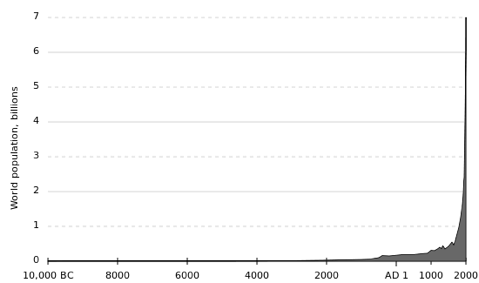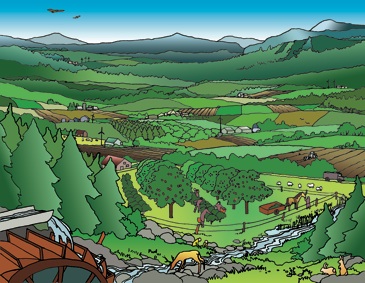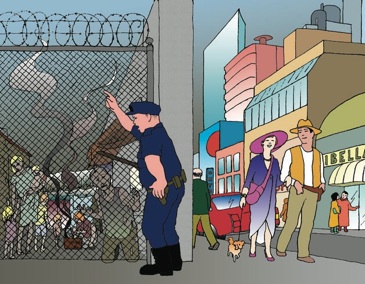concerns with our present


a second invisible hand
“The mistake of Greenspan and other supply-side economists was to assume that, even though the free market by itself is no moral enterprise, it would steer society toward a state in which everyone’s interest were optimally served. Hadn’t their demigod, Milton Friedman, declared that social responsibility conflicts with freedom? And hadn’t an even higher authority, Adam Smith, given them the metaphor of the “invisible hand,” according to which even the most selfish motives will automatically advance the greater good? The free market knows what is best for us. The baker needs income, his clients need bread, and voila, both parties stand to gain from their transaction. Morality has nothing to do with it.
Unfortunately, these references to Smith are selective. They leave out an essential part of this thinking, which is far more congenial to the position I have taken throughout this book: namely that reliance on greed as the driving force of a society is bound to undermine its very fabric. Smith saw society as a huge machine, the wheels of which are polished by virtue, whereas vice causes them to grate. The machine just won’t run smoothly without a strong community sense in every citizen. Smith frequently mentioned honesty, morality, sympathy, and justice, seeing them as essential companions to the invisible hand of the market”whose work I value!
In effect, society depends on a second invisible hand, one that reaches out to others. The feeling that one human being cannot be indifferent to another if we wish to build a community true to the meaning of the word is the other force that underlies our dealings with one another. The evolutionary antiquity of this force makes it all the more surprising just how often it is being ignored.”
De Waal F. (2009) The Age of Empathy, p. 222
the last 3,000 years
As you may know, recorded human history is only a tiny fraction of our total history as a social, languaging, species. Some things did happen about 10,000 years ago that set the stage for the dramatic changes that have been happening at an escalating rate over the last 3,000 years. Among the more recent changes there has been an evolution of technologies. And I do mean it as an evolution in the sense of each development depending on many previous ones, and further, happening at a moment of political history in which it could be realized. The design of buildings, vehicles, tools, and electronics has been a socially mediated epigenic process.
Even as agriculture enabled human population centres to grow, the growth of our modern technologies has led to a literal explosion in the worldwide human population.
artists and cultural change
Many artists depict things they are concerned about (perhaps all of them do, perhaps some are concerned more with beauty or spiritual/religious ideas, and others with cultural issues.) In any case my attention has been drawn to several who do depict things that concern them about how western and global cultures are becoming, and the two keynote recordings I’ve included there show some of their works. You may also follow up with viewing some of their other works.
what market economics fails to address
“ Most economic models are based on the neo-classical – Keynesian synthesis that frames economics as a constrained global optimization problem: maximize utility subject to the availability of labour and capital. For this formulation to be valid at least two conditions must be met. The first is that individual utility functions must be independent and therefore additive. The second is that the economy is not constrained by the availability of sources and sinks for materials and energy. This formulation has several important implications. Externalities are unimportant and may be ignored. Value is objective and is revealed by market prices, which may be used as weights for aggregation, thereby enabling macro-economics. Employment, insofar as it is the limiting factor, may be relied upon as the main means of distributing income. Technological change may be safely treated as an unexplained residual. The dominant mode of behaviour of economic agents is competition. And the essential role of governance is to assure that all agents play by the rules of the game. This is the worldview articulated by Paul Samuelson in his Foundations.
Judged from within its own frame of reference, the neo-classical – Keynesian synthesis has been successful, at least over the postwar years in North America and Europe. Economic growth has been sufficient to maintain near full employment.
However, when judged from outside of its own frame of reference, there is a growing consensus that the neo-classical – Keynesian synthesis has failed to address the following issues:
-
•ecological limits are impending
-
•the goal of long term sustainability conflicts with the objective of growth
-
•GDP or GDP per capita is not an adequate indicator of social well being or prosperity
-
•the instabilities associated with financial bubbles have deepened
-
•there is a growing inequity in the distribution of income.”
Robert Hoffman, unpublished paper 2010



millennium ecosystem assessment
This website is not focused specifically on ecology, but you may be interested to take a look at the MEA website, which attempted to do a worldwide survey of the state of various resources, including so-called “ecosystem services” (plants producing oxygen, algae and other organisms cleaning water).
The images on this page are depictions of four different potential future scenarios, both for rich and poor, urban and rural.
(I created these in collaboration with an artist, Jane Wolsak and colouring assistance from Veronica Cordova de la Rosa)
You may wish to view some of the slide presentations.

I would like to offer another resource that is relevant to our culture. There is a highly informative and entertaining Swedish Public Health Teacher, Hans Rosling. He, with the help of his “slave labour” (his son) has developed what he calls the “Gapminder” software. This software shows various indicators plotted against each other over history. Whether you play with the software or not you will likely appreciate some of his highly entertaining presentations that have been recorded. As there are new ones all the time, do explore further than the few linked here.
Rosling on why human population growth will level off.
Rosling on when China and India will catch up to Western standard of living
Chris Jordan’s website
Edward Burtynsky resources, from left to right: website, “on the hour” interview, and TED talk on Manufactured Landscapes.





Robert Hoffman’s full paper on market economics, excerpt below.
story: automatic steering







